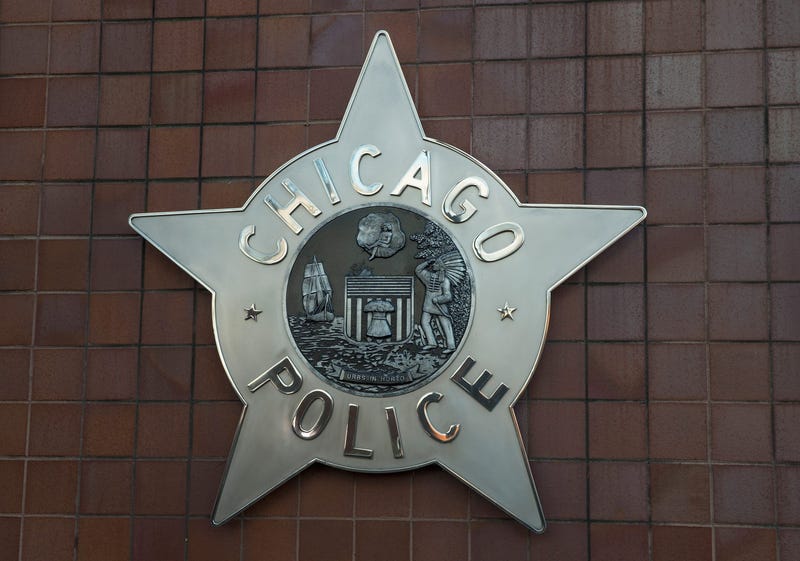
CHICAGO (WBBM NEWSRADIO) -- Following an increase in murders and shootings so far this year, the Chicago Police Department announced it is doubling down on its all-hands-on-deck public safety strategy as the city heads into the summer months.
With a 34 percent increase in murders and a 45 percent increase in shooting incidents compared to the same time last year, CPD has focused its efforts on seizing and recovering illegal guns in an effort to reduce the next shooting or murder. To date, officers have recovered more than 4,600 guns already this year and have made more than 2,200 gun arrests — up 17 percent from 2019.
While the Chicago Police Department remains committed to curbing violent crime in all communities across Chicago, the first six months of 2020 saw a 9 percent reduction in overall crime citywide. According to CPD, this category includes: murder, criminal sexual assault, robbery, aggravated battery, burglary, theft and motor vehicle theft. These reductions in overall crime were driven by more than 20 percent declines in theft and criminal sexual assault through June 30, compared to the same six-month period in 2019. Additionally, robbery, theft and motor vehicle theft in Chicago remain at 20-year lows year-to-date.
“Police officers are working hard to keep Chicago safe, as evidenced by the number of weapons they pull off of our city’s streets each day. While overall crime remains down across the city, we will not rest until murders and shootings in our city are reduced in every single community,” said Superintendent David O. Brown, in a statement. “It’s the guns that remain in the hands of criminals that continue to cause destruction and heartache. We remain committed to building on our all-hands-on-deck strategy and partnering with those in the community and in law enforcement to bring the perpetrators of violence to justice.”
To build on our efforts to reduce violence in all of Chicago's neighborhoods, the Chicago Police Department said it is collaborating its public safety and violence prevention efforts in partnership with street outreach organizations, community-based organizations, and community leaders.
According to CPD, local police districts have been partnering with the violence interrupters, block clubs, and street outreach organizations, who provide crisis de-escalation, youth programming, employment in transitional jobs and cognitive behavioral therapy and support for those at the highest risk of violence. This evidence-based public health approach has not only been proven to reduce gun violence in communities, but also to improve community perceptions of police.
Over the past month, the Chicago Police have launched multiple Operation Clean missions across Chicago's neighborhoods as part of Mayor Lightfoot's all-hands-on-deck, multi-department effort to protect and serve Chicago's residents and communities. In partnership with the Department of Streets and Sanitation (DSS) and other city departments and agencies, Operation Clean missions deliver comprehensive resources to Chicago's neighborhoods, including fixing broken streetlights and potholes, repairing damaged buildings, removing unwanted graffiti and cleaning empty lots.
The Chicago Police Department has also launched multiple Operation Wake Up missions in response to deadly shootings in several city neighborhoods. The Operation Wake Up missions are held in partnership with the local communities and neighborhood activists as part of an effort to stand united against gun violence in Chicago.
Chicago Police announced on June 25 the launch of a Strategic Decision Support Center (SDSC) within the 1st (Central) District. This technology hub allows officers to view more than 32,000 surveillance cameras citywide. The latest SDSC Room also operates in partnership with the Chicago Transit Authority, allowing officers to monitor activity at CTA stations, tunnels and platforms.
Mayor Lightfoot and Superintendent Brown announced on June 15 a new Community Working Group designed to review the department’s policies pertaining to use of force. Comprised of community leaders, activists and police officers from across Chicago, the new group will convene in partnership with CPD over the summer to provide feedback, revisions and formal recommendations to the police department to adopt under a new use of force policy.
In addition to those announcements, Mayor Lightfoot announced on June 26 a host of historic police reforms that the city obtained in arbitration with the police unions that represent the more than 1,500 sergeants, lieutenants and captains. The arbitrator’s award will now include allowing anonymous complaints to be investigated, ending the requirement of destroying disciplinary records, preventing the names of complainants from being disclosed to officers until they are interviewed and additional reforms that will align Chicago with national best practices.
And, the Independent Monitoring Team's second semiannual report released on June 18 illustrated how the level of transformational change and reform that CPD is working towards cannot be achieved overnight. While the report showed that the city missed more than half of its court-ordered deadlines in the latest reporting period, the department has doubled down on its efforts to implement all requirements of the consent decree.
Since the consent decree became effective in March 2019, CPD has successfully implemented a host of significant reform measures, including additional in-service training and mental health support for our officers, updated use of force policies that emphasize de-escalation and sanctity of life, and an updated approach toward community engagement that will ensure CPD policies are reflective of the communities it serves.
